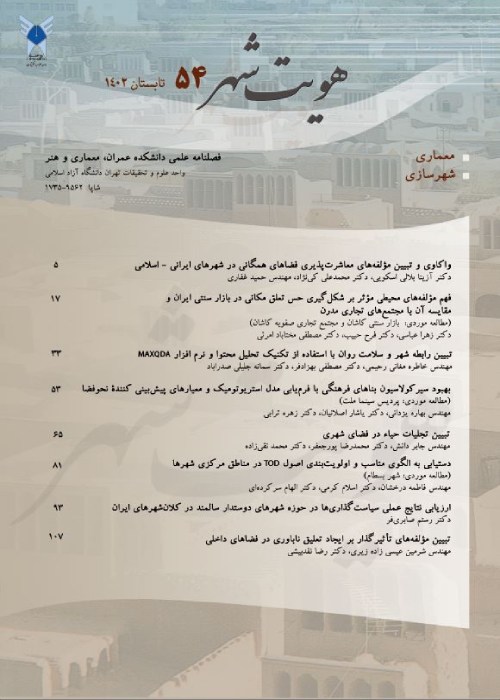Comparing of Recognition and Creation Process by Exploring the “Truth” and “Concept” Position in Islamic and West Art and Architecture
Creation of art and architecture without considering of knowledge will be an incomplete creation. The kind of understanding and cognition in every worldview forms the process of formation and sustainability of thought. Knowledge is a familiarity with someone or something, which can include facts, information, descriptions, or skills acquired through experience or education. It can refer to the theoretical or practical understanding of a subject. It can be implicit or explicit; it can be more or less formal or systematic. In philosophy, the study of knowledge is called epistemology; the philosopher Plato famously defined knowledge as "justified true belief." However, no single agreed upon definition of knowledge exists, though there are numerous theories to explain it. Knowledge acquisition involves complex cognitive processes: perception, communication, association and reasoning; while knowledge is also said to be related to the capacity of acknowledgment in human beings. The eventual demarcation of philosophy from science was made possible by the notion that philosophy's core was "theory of knowledge," a theory distinct from the sciences because it was their foundation. Without this idea of the "theory of knowledge," it is hard to imagine what "philosophy" could have been in the age of modern science. Symbolic representations can be used to indicate meaning and can be thought of as a dynamic process. Hence the transfer of the symbolic representation can be viewed as one ascription process whereby knowledge can be transferred. Other forms of communication include observation, verbal exchange, and audio and video recordings. Philosophers of language and semioticians construct and analyze theories of knowledge ilm) is given great significance. "The Knowing" (al- ‘ ,علم : transfer or communication. Islam, knowledge (Arabic ‘Alïm) is one of the 99 names reflecting distinct attributes of God. The Qur'an asserts that knowledge comes from God. Knowledge which comes from intuition may lead to true creation. In other hand, true artworks have a true thought or intuition in their background. Recognition of Islamic art and architecture shows that target of perception was intuition and the target of creation was durability in artwork. Muslim artist understood the truth via intuition not science and tried to form her/his thought by geometry which born in her/his imagination so her/his creation was in the direction of existence. Senses were necessary but inadequate in her/his cognition process so they were sufficient near the Greek thought. Greek artist focused on characters of phenomena instead of theirs existence. So in the creation process they tried to explore these characters in geometrical face than in modern era, artist limited the understanding in mental by replacing the concept instead of truth, he/she doesn't attend senses and intuition. This research tries to show the position of truth and concept in the Islamic and modern art creation by cognition of Islamic epistemology and modern. Then it shows the reasons of sustainability of past Islamic works in different eras, and on the other hand, shows the reasons of modern variation thoughts and aims to consider the relation between object and subject via philosophy approach in every worldview.
- حق عضویت دریافتی صرف حمایت از نشریات عضو و نگهداری، تکمیل و توسعه مگیران میشود.
- پرداخت حق اشتراک و دانلود مقالات اجازه بازنشر آن در سایر رسانههای چاپی و دیجیتال را به کاربر نمیدهد.


